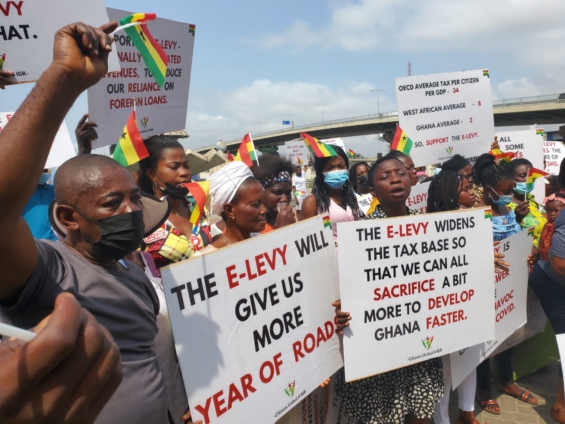Pressure group Assembly of Citizens United for Internally Generated Revenue is urging Ghanaians to accept the Electronic Transaction Levy (E-Levy).
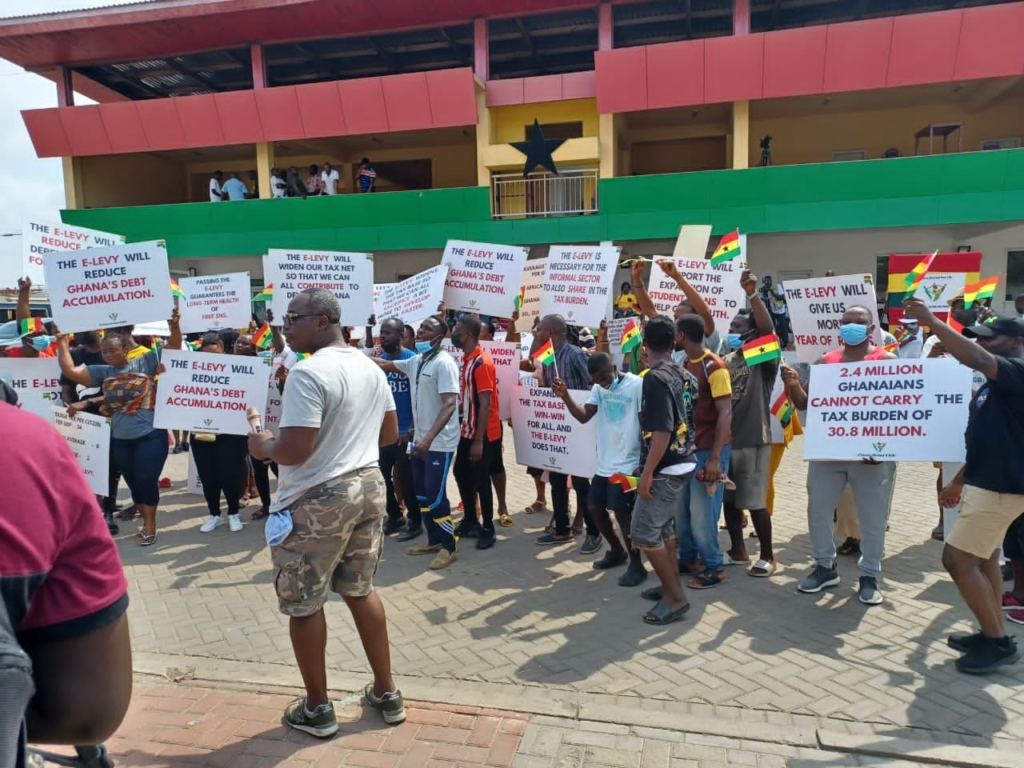
On Monday, the group went on a sensitisation walk to teach Ghanaians about the importance of the e-levy passing.
In an interview with JoyNews, the Convener of the group, Clifford Bansah, said the revenue generated will help resurrect the economy left in shambles due to the Covid-19 pandemic.
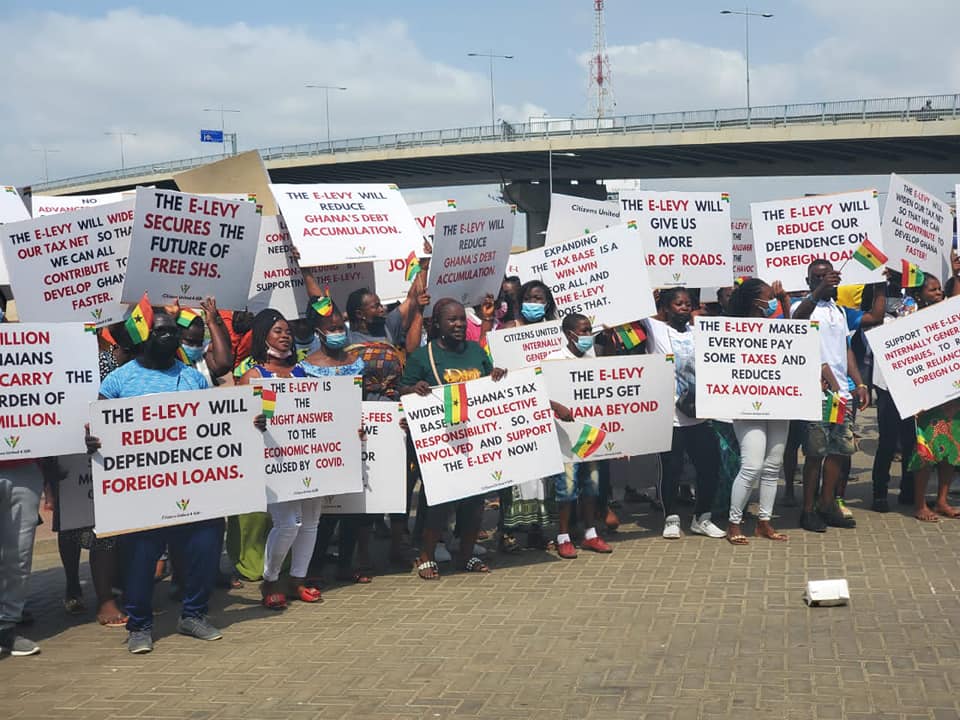
According to him, the widened tax net nature of the levy will help enable “those who are evading tax, those who simply don’t pay because they are not captured” also to contribute their percentage.
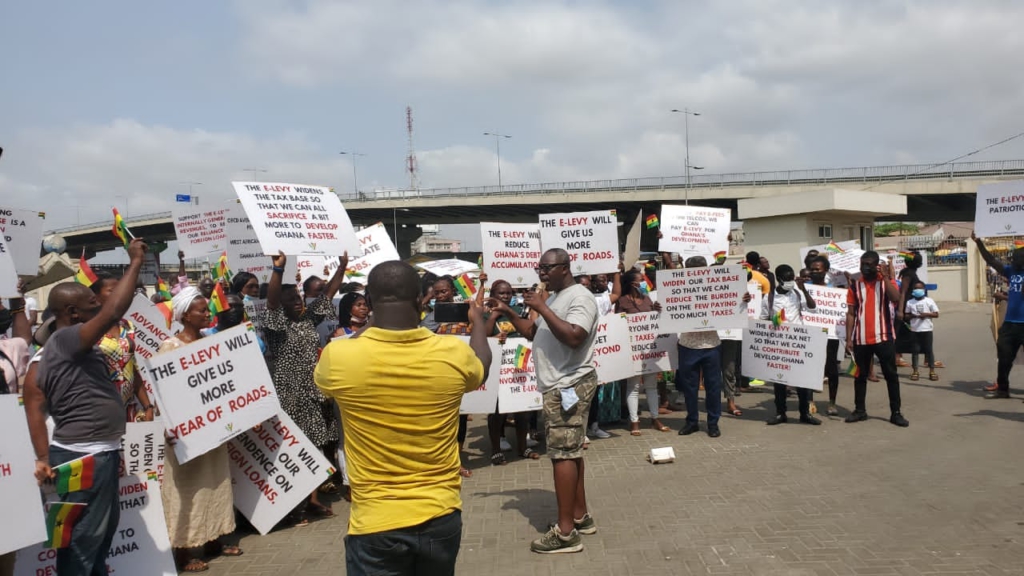
“When you widen it, you can capture a lot of people, and the infrastructure and the social amenities that we need will follow. It is simply that we are not collecting enough,” he told JoyNews.
He added that “the informal nature of our economy shows that we need to introduce taxes or levies like the e-levy that is wide enough that can capture everybody.”
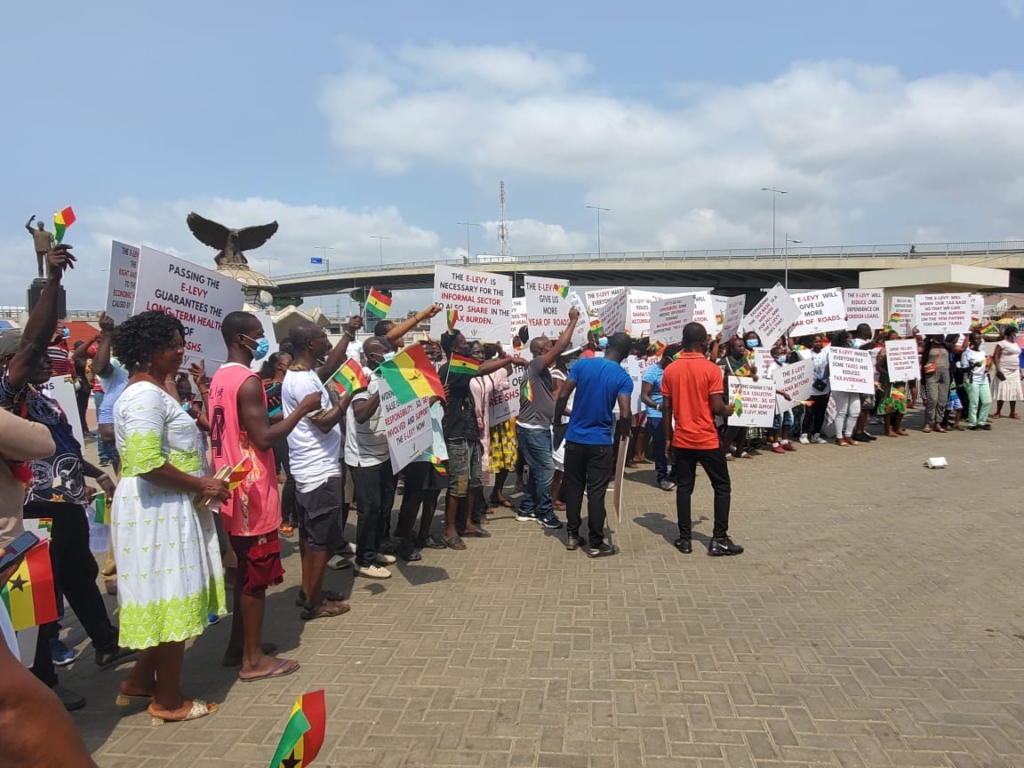
Meanwhile, former Finance Minister, Prof. Kwasi Botchway, has painted a gloomy image of Ghana’s economy, describing it as one that is suffering grave distress.Prof Botchway wants the government to thoroughly review the economy to cut expenditures and avoid measures that will mortgage Ghana’s future.
On Monday, he made these comments at a public lecture organised by the One Ghana Movement at the University of Ghana.
About E-levy
Finance Minister Ken Ofori-Atta, presenting the 2022 budget on Wednesday, November 17, announced that the government intends to introduce an Electronic Transaction Levy (e-levy).
The levy, he revealed, is being introduced to “widen the tax net and rope in the informal sector”. This followed a previous announcement that the government intends to halt the collection of road tolls.
The proposed levy, which was expected to come into effect in January 2022, is a charge of 1.75% on the value of electronic transactions. It covers mobile money payments, bank transfers, merchant payments, and inward remittances. There is an exemption for transactions up to GH¢100 per day.
Explaining the government’s decision, the Finance Minister revealed that the total digital transactions for 2020 were estimated to be over GH¢500 billion (about $81 billion) compared to GH¢78 billion ($12.5 billion) in 2016. Thus, the need to widen the tax net to include the informal sector.
Although the government has argued that it is an innovative way to generate revenue, scores of citizens and stakeholders expressed varied sentiments on its appropriateness, with many standing firmly against it.
Even though others have argued in support of the levy, a section of the populace believe that the 1.75% e-levy is an insensitive tax policy that will deepen the already prevailing hardship in the country.
Currently, government is organising a town hall meeting to sensitise Ghanaians on the need to accept and pay the e-levy.
Latest Stories
-
The influence Ronaldo has on people, Cadman Yamoah will have same on the next generation – Coach Goodwin
13 mins -
Gender Advocate Emelia Naa Ayeley Aryee Wins prestigious Merck Foundation Awards
1 hour -
South Africa bursary scandal suspects granted bail
2 hours -
Ecobank successfully repays $500m Eurobond due April 18
2 hours -
Re: Doe Adjaho, Torgbui Samlafo IV, call for Unity among Paramountcies in Anlo
2 hours -
Extortion and kidnap – a deadly journey across Mexico into the US
2 hours -
Rihanna says fashion has helped her personal ‘rediscovery’ after having children
2 hours -
Development Bank Ghana targets GH¢1bn funding for commercial banks in 2024
2 hours -
Shatta Movement apologises to Ghana Society of the Physically Disabled after backlash
3 hours -
Sammy Gyamfi writes: Tema-Mpakadan Railway Project; A railway line to nowhere
3 hours -
Bright Simons: Is the World Bank saving or harming Ghana?
4 hours -
CAF Cup: RS Berkane banned from entering Algeria because of a map of Morocco with its Sahara
4 hours -
The media isn’t doing what is expected of journalism – Sulemana Braimah
4 hours -
Truck driver who caused train accident jailed 6 months
4 hours -
Music review: Okyeame Kwame proves rap dexterity on ‘No Competition’
4 hours

